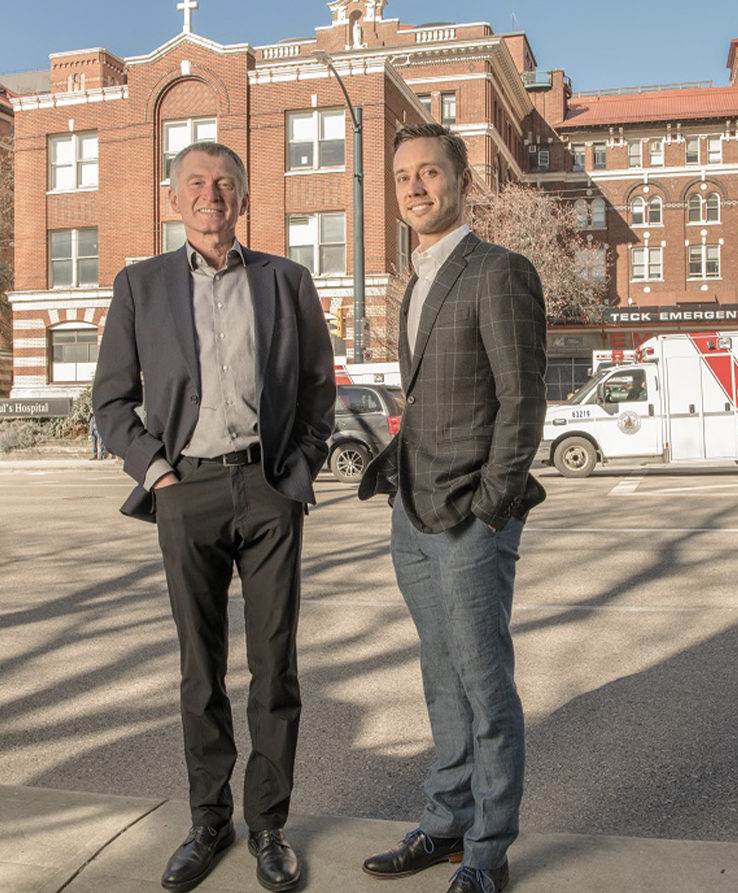Emergency Medicine
Emergency medicine research involves the study of services, innovations, and clinical management to prevent emergencies, optimize emergency care, and result in safe transitions to the community.
View Related Stories
Finding innovative solutions to prevent emergencies & optimize emergency care
The Emergency Medicine Program at Advancing Health conducts research in resuscitation, clinical prediction rules, cardiovascular emergencies, patient safety, infectious diseases, mental health care, and addictions/substance use, with care and research goals that are aligned with the needs of local patients and that aim to support patients and physicians across B.C.
9
Clinician–Scientists
35+
Publications per Year
6
Clinical Guidelines Co-authored
1,400
Emergency Practitioners in B.C. Reached

About the Program
The Emergency Medicine Program at Advancing Health conducts research in resuscitation, clinical prediction rules, cardiovascular emergencies, patient safety, infectious diseases, mental health, addictions and substance use, with care and research goals that are aligned with the needs of local patients that aim to support patients and physicians across British Columbia.
The St. Paul’s Emergency Research Group was founded by Dr. Jim Christenson in 1994, and under his leadership became one of the pre-eminent emergency research groups in Canada, with an annual output of over 35 peer-reviewed publications. Now a Advancing Health research program, this group of investigators works in close collaboration to develop study protocols, analyze data, and disseminate results through publication and other platforms.
Additional Information
The emergency department at St Paul’s Hospital has 90 000 annual visits and is a provincial cardiac referral center. It serves many patients with complex health and social needs. All researchers in the program are Advancing Health Scientists and are involved with the British Columbia Emergency Medicine Network, a multi-platform knowledge exchange and translation network that provides 1,400 B.C. emergency practitioners with evidence-based information to improve patient care.
Learn More
Examples of Our Projects
The primary research & methodology areas the Emergency Medicine Program undertakes are:
Learn More About the Program
Want to learn more about our Emergency Medicine Program? Read related stories here.
View All PostsResearch Programs
Advancing Health Scientists work across a broad range of disciplines, from health economics to personalized medicine, to decision sciences and much more.
Learn More
